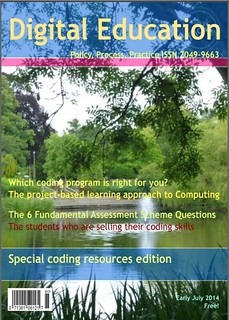 When I was crazy about film-making as a teenager (see I was a teenage geek) I never liked using fully automated cameras. Yes, they were convenient, and they saved you the bother of having to think too much, and the results were passable. But they left no room for exercising one’s professional judgement. Using a camera with a manual override button enabled you to find out what the camera “thought” the aperture and other settings should be, and then use them as a basis for your own decision.
When I was crazy about film-making as a teenager (see I was a teenage geek) I never liked using fully automated cameras. Yes, they were convenient, and they saved you the bother of having to think too much, and the results were passable. But they left no room for exercising one’s professional judgement. Using a camera with a manual override button enabled you to find out what the camera “thought” the aperture and other settings should be, and then use them as a basis for your own decision.Assessing Computing: the need for a manual override option
 When I was crazy about film-making as a teenager (see I was a teenage geek) I never liked using fully automated cameras. Yes, they were convenient, and they saved you the bother of having to think too much, and the results were passable. But they left no room for exercising one’s professional judgement. Using a camera with a manual override button enabled you to find out what the camera “thought” the aperture and other settings should be, and then use them as a basis for your own decision.
When I was crazy about film-making as a teenager (see I was a teenage geek) I never liked using fully automated cameras. Yes, they were convenient, and they saved you the bother of having to think too much, and the results were passable. But they left no room for exercising one’s professional judgement. Using a camera with a manual override button enabled you to find out what the camera “thought” the aperture and other settings should be, and then use them as a basis for your own decision.






